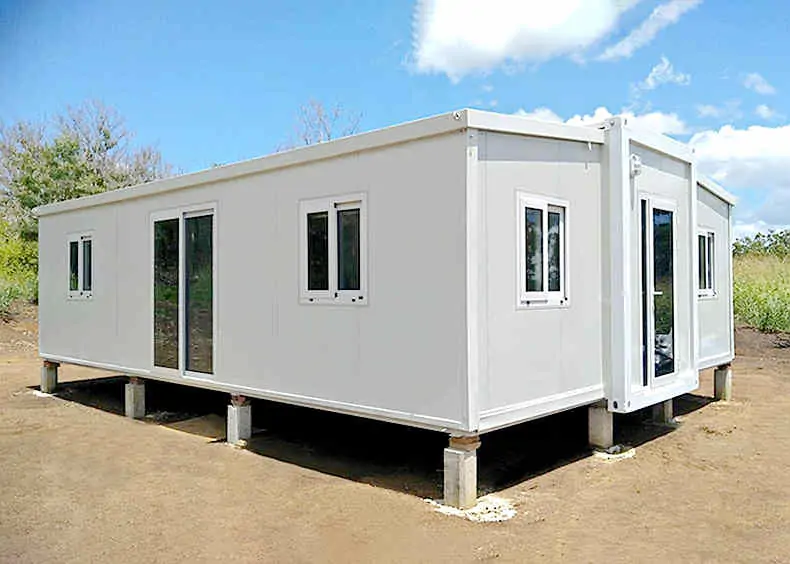Introduction:
In recent years, the concept of expandable container houses has revolutionized the way we think about sustainable living and innovative architecture. These compact yet versatile structures offer a unique solution to the challenges of urban living, providing a blend of functionality, affordability, and eco-friendliness. In this article, we’ll delve into the fascinating world of expandable container houses, exploring their design, benefits, and potential applications in the modern world.
Design and Construction:
Expandable container houses are typically constructed from repurposed shipping containers, which are known for their robustness and portability. The basic design involves one or more containers that can be expanded or unfolded to create additional living space, transforming a compact unit into a spacious dwelling. Innovative engineering and design techniques allow for seamless expansion, with features such as hydraulic mechanisms or manual folding systems facilitating the process.
Functionality and Versatility:
One of the key advantages of expandable container houses is their inherent versatility. These modular structures can be customized to suit a wide range of purposes, from cozy residential homes to temporary office spaces, pop-up shops, or even disaster relief shelters. The ability to expand or contract the living space according to specific needs makes them ideal for urban environments where space is at a premium.
Space Optimization:
Despite their compact footprint, expandable container houses are designed to maximize space efficiency. Clever floor plans and multi-functional furniture solutions help optimize every square foot of available space, ensuring that residents enjoy a comfortable and functional living environment. Features such as built-in storage solutions, fold-down beds, and collapsible dining tables add to the versatility of these homes, allowing for seamless transition between different living configurations.
Sustainability and Eco-Friendliness:
In an age where sustainability is paramount, expandable container houses offer a compelling eco-friendly alternative to traditional construction methods. By repurposing shipping containers that would otherwise end up in landfills, these structures help reduce waste and minimize environmental impact. Additionally, the modular nature of container construction allows for efficient use of materials and resources, further enhancing their eco-friendliness.
Affordability and Cost-Effectiveness:
Another appealing aspect of expandable container houses is their affordability relative to conventional housing options. The use of repurposed shipping containers significantly reduces construction costs, making these homes accessible to a wider range of individuals and families. Furthermore, the modular design and rapid assembly process help minimize labor expenses, resulting in overall cost savings for homeowners or developers.
Conclusion:
Expandable container house present a bold new frontier in sustainable architecture, offering a compelling blend of functionality, versatility, and eco-friendliness. Whether used as permanent residences, temporary accommodations, or innovative commercial spaces, these modular structures are redefining the way we approach urban living. With their compact footprint, customizable design, and cost-effective construction, expandable container houses are poised to play a key role in addressing the evolving needs of our rapidly changing world.
